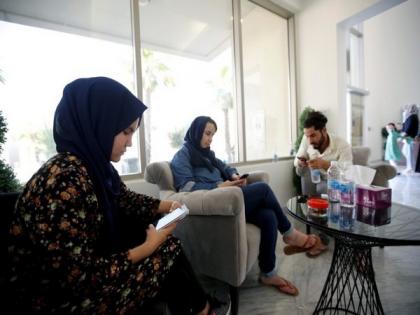Afghan journalists face 'dire' conditions in Iran, Pakistan; group warns of growing crisis
By ANI | Updated: July 23, 2025 05:39 IST2025-07-23T05:31:43+5:302025-07-23T05:39:29+5:30
Kabul [Afghanistan], July 23 : The Afghanistan Journalists Support Organization has warned of "dire" and "disastrous" conditions facing Afghan ...

Afghan journalists face 'dire' conditions in Iran, Pakistan; group warns of growing crisis
Kabul [Afghanistan], July 23 : The Afghanistan Journalists Support Organization has warned of "dire" and "disastrous" conditions facing Afghan journalists in Iran and Pakistan, Khaama Press reported.
Many fled due to threats and censorship under Taliban rule, but now face risks including "arbitrary arrest, forced deportation, and denial of basic services", according to Khaama Press. This marks a harsh turn in their plight.
In Pakistan, suspended visa renewals have left many journalists in legal limbo, exposing them to "police detention and deportation", while in Iran they report similar difficulties such as lack of access to essential services, Khaama Press said.
Underscoring the severity, the organization appealed to global institutions, urging the "United Nations, the European Union, Reporters Without Borders, and Western governments to accelerate asylum processes and offer immediate support," Khaama Press reported.
With broader crackdowns on Afghan refugees underway in both countries, these journalists also face worsening economic conditions and lack of protection. The organization warned that global "silence ... would only worsen the humanitarian crisis," risking their lives, freedoms, and the broader principle of press freedom.
Amid these growing threats, the United Nations has raised serious concerns over a new media directive issued by the Taliban, warning that the policy will intensify fear and self-censorship among Afghan journalists.
In a statement issued on Thursday, the United Nations Assistance Mission in Afghanistan (UNAMA) stated that the move will tighten control over press freedom and formalise previous restrictive actions, as reported by Khaama Press.
The directive mandates that all political programs and participants must receive prior approval from the Taliban's Ministry of Information and Culture before broadcast.
According to Khaama Press, the four-page document titled "Policy for Holding Political Programs (Roundtables) in Afghanistan" requires media outlets to submit content to the ministry ahead of time and mandates ID cards for all program participants.
UNAMA stated that the new rules "increase fear and self-censorship among Afghanistan media outlets" and warned that the directive "further erodes press freedom in the country," Khaama Press reported. The organisation said the policy institutionalises restrictions that have escalated since the Taliban took power in August 2021.
According to Khaama Press, the Taliban's media policy emphasises that political content must align with the "Islamic Emirate's policies." It warns that criticism of the Taliban or deviation from "national unity and values" could lead to harsh penalties, including suspension of media licenses.
Additionally, the ministry has ordered that media criticism of Taliban officials must be done "in a respectful manner" and remain within the bounds of Islamic law. Analysts have described these instructions as a veiled threat to independent journalism, according to Khaama Press.
Since returning to power, the Taliban have imposed sweeping restrictions on free expression, targeting dissent and applying pressure on the press. The latest directive expands editorial control and places Afghan media directly under Taliban scrutiny, Khaama Press highlighted.
These developments coincide with Afghanistan's steep fall in the 2025 World Press Freedom Index released by Reporters Without Borders (RSF). As per Khaama Press, the country now ranks 175th out of 180 nations, scoring just 17.88 pointsa significant drop compared to prior years.
International human rights organisations and press freedom watchdogs have urged the Taliban to reverse these repressive measures. Without immediate reform, Khaama Press noted, Afghanistan risks becoming one of the most hostile countries in the world for independent journalism and freedom of expression.
Disclaimer: This post has been auto-published from an agency feed without any modifications to the text and has not been reviewed by an editor
Open in app